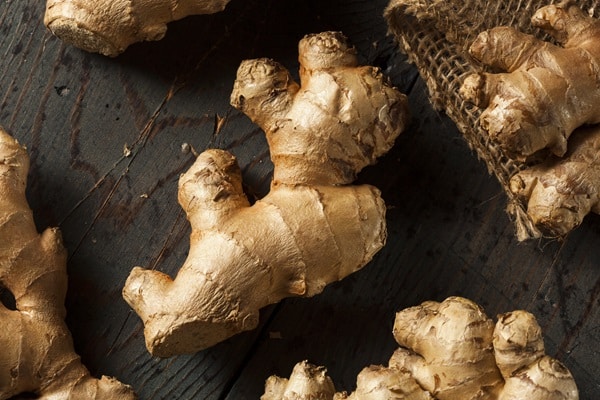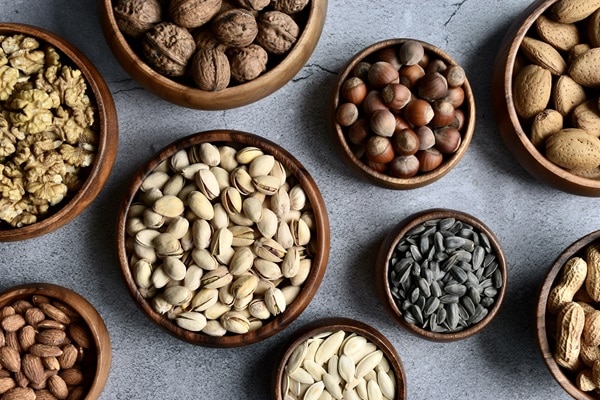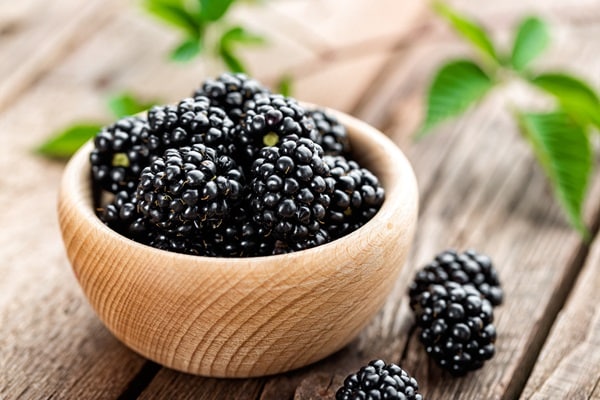Metabolism plays a crucial role in how the body uses food for energy and overall health. While many factors influence metabolic rate, diet is a key component. This article delves into foods known for their metabolism boosting properties. From lean meats to legumes, these foods not only enhance metabolic functions but also offer a range of health benefits. Understanding how these foods impact metabolism can guide you in making informed dietary choices for a healthier lifestyle. So, if you are looking to shed some extra pounds or simply improve your overall well-being, incorporating these foods into your diet will be a great start.
Contents
- 1 Lean Meats: Protein-Powered Metabolic Boost
- 2 Legumes: Plant-Based Metabolic Enhancers
- 3 Chili Peppers: Heating Up Your Metabolism
- 4 Ginger: A Spicy Metabolic Stimulant
- 5 Whole Grains: Complex Carbs For Metabolic Support
- 6 Nuts And Seeds: Nutrient-Dense Metabolic Boosters
- 7 Cruciferous Vegetables: High-Fiber Metabolic Aids
- 8 Berries: Antioxidant-Rich Metabolic Enhancers
- 9 Boost Your Metabolism With These Superfoods
Lean Meats: Protein-Powered Metabolic Boost

Lean meats, such as chicken and turkey, are powerhouse foods for boosting metabolism. These meats are rich in protein, which requires more energy for the body to digest compared to fats or carbohydrates. This process, known as the thermic effect of food, results in an increased metabolic rate. Additionally, protein is essential for muscle building and repair. Since muscle tissue burns more calories than fat tissue, even at rest, incorporating lean meats into your diet can enhance your body’s calorie-burning capability.
Moreover, lean meats are not only about increasing metabolism; they also provide essential nutrients like iron, which are crucial for transporting oxygen in the blood, further supporting metabolic processes. When choosing lean meats, opt for skinless options and avoid processed meats to maximize health benefits. Whether grilled, baked, or stir-fried, lean meats can be a delicious and versatile component of a metabolism-boosting diet.
Legumes: Plant-Based Metabolic Enhancers

Legumes, including beans, lentils, and chickpeas, are excellent foods for enhancing metabolism. They are a fantastic source of both protein and fiber, two nutrients that play a significant role in boosting metabolic rate. The high fiber content in legumes aids in digestion and can help maintain a feeling of fullness, reducing overall calorie intake. Additionally, the protein in legumes contributes to muscle maintenance, which is essential for a healthy metabolic rate.
The versatility of legumes makes them an easy addition to any diet. They can be incorporated into a variety of dishes, from salads and soups to main courses. Furthermore, for those following a plant-based diet, legumes provide an essential source of protein that is often lacking. Regular consumption of legumes can support metabolic health while also providing other health benefits like lowering cholesterol levels and improving heart health.
Chili Peppers: Heating Up Your Metabolism

Chili peppers are a fiery addition to the diet that can significantly boost metabolism. The key compound in chili peppers, capsaicin, is responsible for their spicy flavor and metabolic benefits. Capsaicin has been shown to increase thermogenesis, the process by which the body burns calories to produce heat. This thermogenic effect can lead to a temporary increase in metabolic rate, making chili peppers an excellent food for those looking to enhance their metabolism.
In addition to boosting metabolism, chili peppers have other health benefits. They are rich in vitamins, particularly vitamin C, and have been linked to reducing inflammation and pain. When incorporating chili peppers into your diet, they can be added to a variety of dishes for an extra kick of flavor and heat. From spicy stir-fries to salsas, chili peppers can enliven your meals while contributing to a faster metabolism.
Ginger: A Spicy Metabolic Stimulant

Ginger, known for its distinctive flavor and medicinal properties, is another food that can help boost metabolism. It has a thermogenic effect, similar to chili peppers, which can increase the body’s metabolic rate. Ginger also aids in digestion and enhances the feeling of satiety, which can be beneficial for weight management. Its active compound, gingerol, has anti-inflammatory and antioxidant properties, contributing to overall health.
Integrating ginger into your diet is simple and can add a unique flavor to various dishes. It can be used fresh, dried, or as a spice in cooking, or even consumed as a tea. Ginger not only enhances the flavor of food but also brings a host of health benefits, including its metabolism-boosting effects. Whether added to smoothies, soups, or stir-fries, ginger can be a delightful and healthful addition to your meals.
Whole Grains: Complex Carbs For Metabolic Support

Whole grains, such as brown rice, quinoa, and oats, are essential for a metabolism-boosting diet. Unlike refined grains, whole grains retain all parts of the grain, providing a rich source of fiber and complex carbohydrates. These nutrients are digested more slowly, providing a steady release of energy and keeping the metabolic rate elevated. Additionally, the fiber in whole grains helps maintain a healthy digestive system, which is crucial for efficient metabolism. Whole grains also contain essential nutrients like B vitamins, which play a key role in energy metabolism.
Incorporating whole grains into your diet can be both delicious and easy. They can replace white rice, pasta, and bread in most recipes, offering a more nutritious and filling alternative. Whole grains can also be a part of breakfast, as in oatmeal or whole-grain cereals, and are excellent in salads and side dishes. Their versatility and health benefits make whole grains an ideal choice for anyone looking to boost their metabolism and improve overall health.
Nuts And Seeds: Nutrient-Dense Metabolic Boosters

Nuts and seeds are small but mighty when it comes to boosting metabolism. They are packed with a balance of healthy fats, protein, and fiber, all of which contribute to increasing metabolic rate. The protein and fiber in nuts and seeds keep you feeling full longer, reducing the likelihood of overeating. Furthermore, the healthy fats in these foods are good for heart health and aid in the absorption of essential nutrients, supporting overall metabolic function.
Incorporating a variety of nuts and seeds into your diet is simple and beneficial. They can be enjoyed as a snack, added to yogurt or salads, or used as a topping for oatmeal and smoothies. However, it’s essential to be mindful of portion sizes, as nuts and seeds are calorie-dense. A small handful can provide the metabolic benefits without adding excessive calories. From almonds and walnuts to chia seeds and flaxseeds, these nutritious powerhouses are a great addition to a metabolism-friendly diet.
Cruciferous Vegetables: High-Fiber Metabolic Aids

Cruciferous vegetables, including broccoli, cauliflower, Brussels sprouts, and kale, are excellent for boosting metabolism. These vegetables are high in fiber, which not only aids in digestion but also helps maintain a steady metabolic rate. The fiber content contributes to a feeling of fullness, potentially aiding in weight management. Cruciferous vegetables are also rich in vitamins and minerals, such as vitamin C and K, folate, and potassium, which are essential for various metabolic processes in the body.
Adding cruciferous vegetables to your diet is both easy and beneficial. They can be enjoyed raw in salads, steamed as a side dish, or incorporated into main courses like stir-fries and casseroles. These vegetables also contain compounds like glucosinolates, which have been studied for their potential anti-cancer properties. Regular consumption of cruciferous vegetables can support metabolic health while also providing a host of other health benefits.
Berries: Antioxidant-Rich Metabolic Enhancers

Berries, such as strawberries, blueberries, raspberries, and blackberries, are not only delicious but also great for boosting metabolism. They are rich in antioxidants and fiber, which aid in metabolic processes and help maintain a healthy weight. The fiber in berries slows down digestion, leading to a more gradual release of energy and a more consistent metabolic rate. Additionally, the antioxidants in berries help combat oxidative stress, which is important for overall metabolic health.
Incorporating berries into your diet is a sweet and healthy choice. They can be eaten on their own, added to yogurt or cereal, or used in smoothies and baking. Berries are also low in calories, making them an ideal snack for those watching their weight. Their natural sweetness can satisfy sugar cravings, making them a healthier alternative to processed sugary snacks. Regular consumption of a variety of berries can contribute to a healthy metabolism and provide numerous other health benefits.
Boost Your Metabolism With These Superfoods
Integrating these metabolism-boosting foods into your diet can significantly enhance your metabolic rate and overall health. From the protein-rich benefits of lean meats and legumes to the fiber and antioxidants in whole grains and berries, each food offers unique benefits. Embrace these nutritious choices in your daily meals and experience the positive changes in your energy levels and health. Start your journey towards a more efficient metabolism today by making these superfoods a regular part of your diet.


